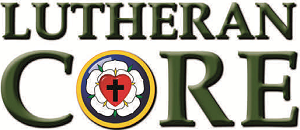Choir Notes
Part of worship planning is choosing the liturgy that we will use during the different seasons of the church year. I grew up Lutheran like most of you. I know that we are a liturgical church. We follow a liturgy in our worship each Sunday, and our church year and lessons are based on the liturgical seasons. It all got me thinking about liturgy, what it means and where it comes from. Like all good Lutherans, I have learned about this throughout the years, but I could use a refresher. I’ve always heard that liturgy means “the work of the people” so, I was prepared to ask myself “how hard am I working?” I mean do I show up each Sunday ready to give one hundred and ten percent or am I keeping my head low hoping the boss doesn’t realize that I’m just not feeling it this week? Being a retired librarian, I decided I ought to do some research. To my surprise I found that the word liturgy does not mean the work of the people.
The word liturgy comes from the Greek, and it translates as “work done for the people.” What? Well, there goes the newsletter article I’ve been composing in my head for the last two weeks! On the bright side, I’m off the hook. I don’t need to worry if I’m praying fervently enough or listening closely to the sermon. If someone else is doing the work, does it really matter if I am there or not? And whose job is it anyway, the pastor’s?
No. The work done on behalf of the people is done by Christ. Christ leads our worship. He comes each Sunday and opens the scriptures for us just as he did for the two disciples on the road to Emmaus after his resurrection. Luke 24:27 tells us that “beginning with Moses and all the prophets, he explained to them what was said in all the scriptures concerning himself.” We gather on Sunday on our own road to Emmaus weighed down by all our fears and confusion just like these disciples, and Christ is right here at St. Jacob ’s. He opens the Word for us and helps us to understand all that God has promised and done for you and me. And then he breaks the bread and opens our eyes.
Does this mean that I am off the hook? Not at all! Each Sunday do I give my full attention to Christ on that road as he talks to me or do I walk away thinking that Christ ’s words left me flat this Sunday, I couldn ’t really follow what he was saying? And just like those two disciples, do I rush to tell my friends of the encounter I have had with Christ? Paul tells us in 1 Corinthians 12 that through our baptism we have been made a part of the body of Christ. Every part of the body works together and not one part can be left out. We are all essential to the work of God. Christ has saved us, Christ opens our eyes and explains God ’s word to us. United with each other and Christ we roll up ours sleeves to get the work done for the people, all of God ’s people.

